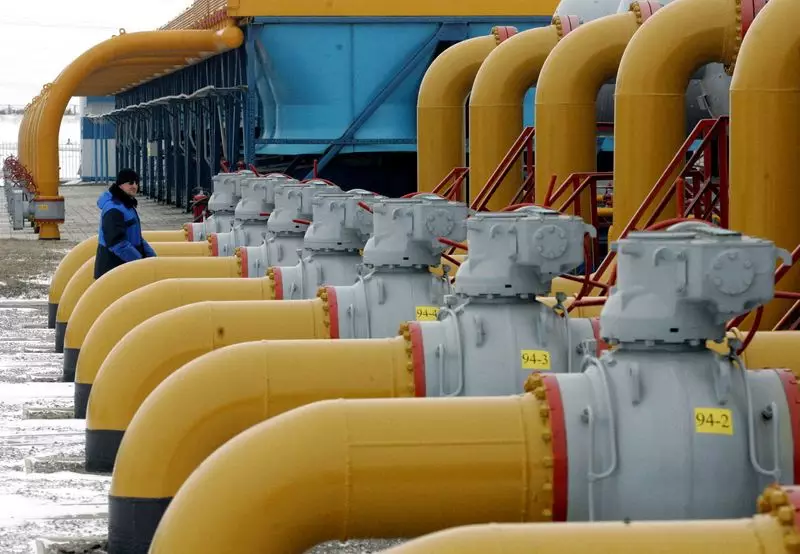As the clock struck midnight on January 1, a significant shift occurred in the European energy landscape: the cessation of Russian natural gas exports through Ukraine’s pipelines. This dramatic halt marks the expiration of a transit agreement that has been at the heart of geopolitical tensions in Europe. The backdrop to this event is a war that has transformed not only the physical landscape but also the dynamics of energy dependence in the region. Since Russia’s annexation of Crimea in 2014 and the subsequent fallout that included Ukraine halting purchases from Russia, relations have deteriorated to a point where this final severing of gas supplies seemed inevitable.
Ukraine has taken a firmer stance regarding Russia, asserting that the cessation of gas transit is a “historic event” with immediate implications for Russia’s financial stability. The country’s Energy Minister, German Galushchenko, emphasized the broader trend of Europe moving away from Russian energy, framing this stoppage as a crucial step in the effort to reduce reliance on Moscow’s natural resources. Given that approximately half of Russia’s total pipeline gas exports to Europe flowed through Ukraine, the repercussions of this decision could resonate throughout the continent.
The impact of this gas transit halt extends beyond Ukraine’s borders. For countries within Europe, the loss of Russian gas is both a challenge and an opportunity. The European Union has been working diligently to diversify its energy sources, especially after the outbreak of the war in Ukraine in February 2022. This has led to alternative arrangements, including the TurkStream pipeline which continues to deliver gas to Central European countries such as Hungary and Serbia, albeit on a limited scale compared to previous years.
Eastern European nations like Moldova are currently grappling with the immediate fallout. Loss of Russian gas compromises not just energy security but day-to-day life for millions. Moldova warned that they would need to implement severe measures, potentially cutting their gas usage by a third. This situation paints a grim picture for those heavily dependent on Russian energy, highlighting the risks associated with such reliance.
From a financial perspective, the halt in gas flows signifies loss for both sides. Ukraine stands to lose approximately $800 million in annual transit fees, a significant hit for a nation that has already been stretched thin due to ongoing conflict and economic instability. Concurrently, Gazprom, Russia’s state-controlled gas company, faces a staggering reduction in revenue, with estimates suggesting nearly $5 billion in lost sales.
This economic development marks a critical turning point for Gazprom, which has historically dominated the European gas market. The company once enjoyed a robust share, contributing to around 35% of Europe’s gas needs at its peak. However, the current geopolitical climate and infrastructure damage to key routes, such as the Nord Stream pipeline, have crippled its market position.
New Paths Ahead: The Future of Energy in Europe
The cessation of gas supplies through Ukraine and other pipelines signifies a fundamental disruption in the energy balance of Europe. While Gazprom has expressed its inability to supply gas through Ukrainian territory as of January 1, 2025, the EU is experiencing a paradigm shift towards alternative energy solutions. Countries are now exploring renewable energy sources, facilitating projects that would lead to greater energy independence and sustainability.
For European leaders, the imperative to reduce reliance on Russian energy has never been clearer. The collective effort to establish a more resilient energy framework invites significant investments in renewable technologies and alternative suppliers. This long-term vision may prove beneficial not just for immediate energy security but also for environmental priorities that have gained urgency in recent years.
In sum, the expiration of the Russian gas transit agreement with Ukraine is not merely an ending; it is a critical point of transition that heralds a transformative period in European energy dependency. With Ukraine asserting control over its energy future and Europe collectively pivoting towards alternative sources, the economic and geopolitical implications of this event will be felt for years to come. The evolution of this energy market will reveal just how resilient and adaptable nations can be in the face of crisis.

